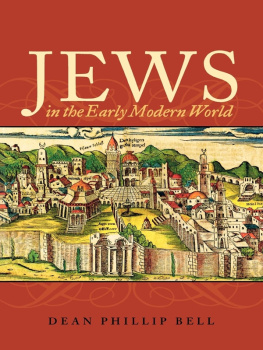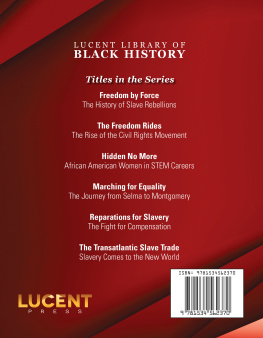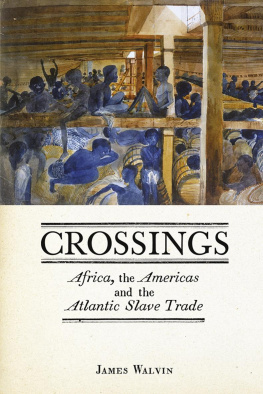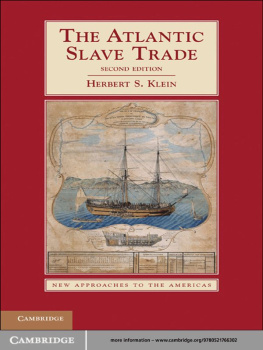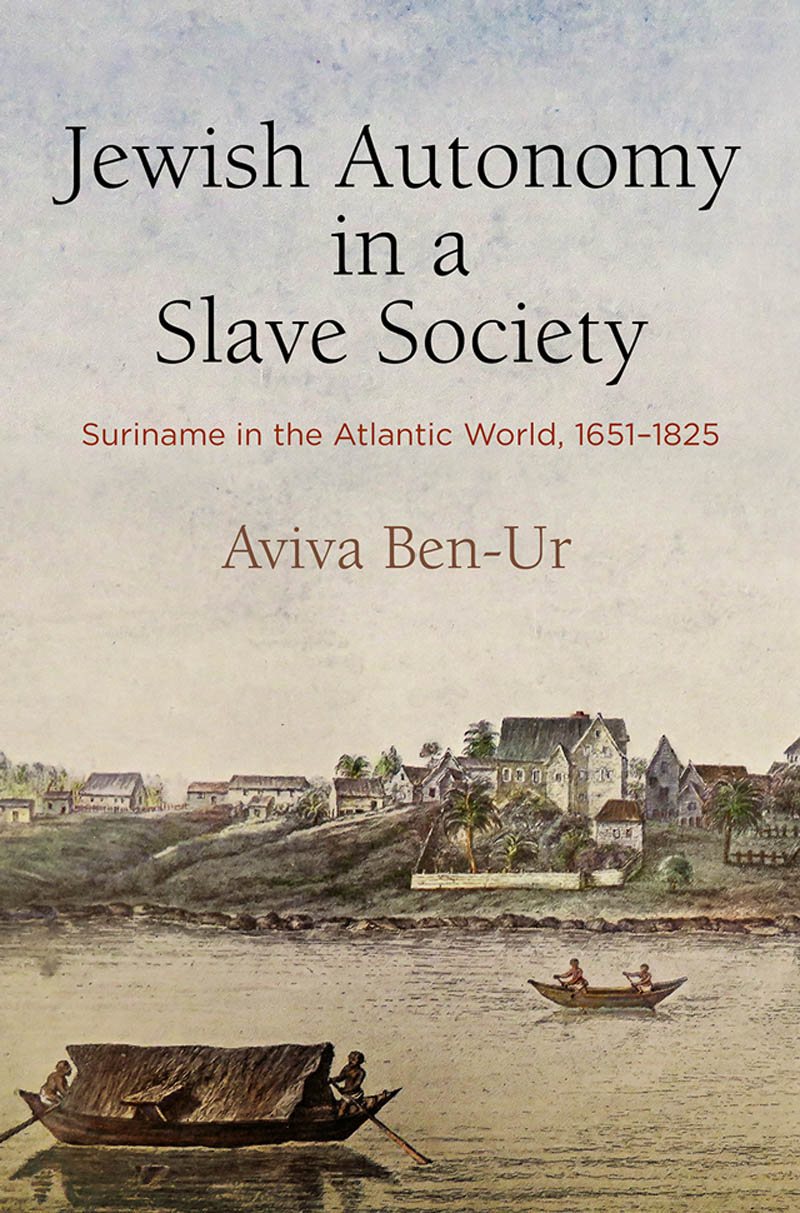Jewish Autonomy
in a Slave Society

THE EARLY MODERN AMERICAS
Peter C. Mancall, Series Editor
Volumes in the series explore neglected aspects of
early modern history in the western hemisphere.
Interdisciplinary in character, and with a special
emphasis on the Atlantic World from 1450 to 1850,
the series is published in partnership with the
USC-Huntington Early Modern Studies Institute.
Jewish Autonomy
in a Slave Society

Suriname in the Atlantic World, 16511825
Aviva Ben-Ur

Copyright 2020 University of Pennsylvania Press
All rights reserved.
Except for brief quotations used for purposes of review or scholarly citation,
none of this book may be reproduced in any form by any means
without written permission from the publisher.
Published by
University of Pennsylvania Press
Philadelphia, Pennsylvania 19104-4112
www.upenn.edu/pennpress
Printed in the United States of America
on acid-free paper
1 3 5 7 9 10 8 6 4 2
Library of Congress Cataloging-in-Publication Data
Names: Ben-Ur, Aviva, author.
Title: Jewish Autonomy in a Slave Society : Suriname in the Atlantic world,
16511825 / Aviva Ben-Ur.
Other titles: Early modern Americas.
Description: Philadelphia : University of Pennsylvania Press, [2020] | Series: Early modern Americas | Includes bibliographical references and index.
Identifiers: LCCN 2019044559 | ISBN 9780812252118 (hardcover)
Subjects: LCSH: JewsSurinameHistory. | SlaverySuriname. | SurinameHistoryTo 1814. | SurinameEthnic relations.
Classification: LCC F2431.J4 B455 | DDC 988.3/004924dc23
LC record available at https://lccn.loc.gov/2019044559
CONTENTS


Since Candide first beheld him in 1759, the negroe stretched upon the ground has become paradigmatic of the brutality of Surinames slave regime. This poor man, whose right hand was severed during a sugar mill accident, and whose left leg was amputated by his master in retribution for absconding, remains nameless in the novella. But neither his identity nor even the basic facts about colonial Suriname were of any significance in the satirical Candide, for Voltaire, born in 1694 as Franois-Marie Arouet, inserted the slave encounter as an afterthought, as a camouflaged jibe directed at his swindling Dutch publisher Johannes van Duren. The mans last name in garbled form became that of the cunning Surinamese slave owner, Vanderdendur, a pseudonym meant to evoke the French expression dent dure, or scathingly critical. Voltaire never even visited Suriname. He was apparently unaware that the lingua franca of slaves was Sranan Tongo, rather than Dutch, that most unfree people in the colony practiced Afro-Creole spiritual traditions, instead of Christianity, and that runaways were punished with the severance of an Achilles tendon, not with the removal of an entire limb. Nor did he seem to mind that ships to Suriname sailed and arrived from North America and the Dutch Republic, not Buenos Aires, Venice, or Bordeaux, or that to reach Suriname from another land one passed through rainforest, rather than desert. Not even the name of the capital city, Paramaribo, was of concern to Voltairehe misidentified it reductively as the town of Surinam.
In a parallel way, much of what is commonly known about Jews in hemispheric American slave societiesparticularly their association with the Atlantic slave trade and slave ownershipalso materialized from an intention to defame rather than to anchor knowledge in credible sources and analysis. The Secret Relationship Between Blacks and Jews, published anonymously by the Historical Research Department of the Nation of Islam in 1991, contends that Jews played a disproportionate role in the African slave trade. It sparked a national debate about history, epistemology of the past, and particularly the (perceived) social and economic relationships between U.S. Jews and African Americans in the twentieth century, the modern-day preoccupation that provided the impetus for the books creation. The volumes assignment as required reading in college courses sparked public discourse that typically disintegrated into diatribes identifying Jews as the utmost oppressors of blacks or into the shopworn apologia that Jews, because of their own experience of persecution in Christian Europe, were benevolent masters or ardent Civil Rights activists who participated in the liberation movement beyond their proportion in the larger white population.
In the ensuing quarter of a century, even the archivally driven works stimulated by the controversy remained straitjacketed within a binary that framed Jews as either persecutors or protectors of enslaved Africans and their descendants.
For the history of Suriname, though, these findings are either inconsequential or axiomatic. Does it really matter whether or not Jews (or any other ethnic group) were at the forefront of the slave trade? Can we even ask if Jews were mild or harsh slave owners so many decades after scholars definitively disproved the cultural determinism of Frank Tannenbaum, who argued in 1946: better a slave in the Catholic Iberian colonies than in the Protestant British Caribbean or U.S. South? And it is this very mingling that hurls history and its actors into exceptionally unanticipated directions.

Jewish Autonomy in a Slave Society explores the unforeseen social consequences of living in a Dutch colony characterized by both extreme coercion and unprecedented autonomy. Suriname was centered on the Wild Coast or Guiana, a vast area that stretched from Venezuela to Brazil. Roughly the size of the State of Georgia in the United States of America, Suriname borders the Atlantic Ocean to its north and is bounded by French Guiana to the east, English-speaking Guyana to the west, and Portuguese-speaking Brazil to the south. The northern coast of South America was a region where the English, French, and Dutch had traded since the late sixteenth century. Suriname was first colonized in 1651 under the proprietary rule of Francis Willoughby of Parham (161466). It passed virtually without bloodshed from English to Dutch hands in 1667 when a Dutch naval squadron attacked. Amid frequent warfare, only two colonies on the continents northern coast remained Dutch for a prolonged time: Berbice, which prevailed from 1627 through 1796, in present-day Guyana, and Suriname, which remained a Dutch colony for most of the three centuries leading up to its independence in 1975.
In early modernity, Suriname was one of two major Caribbean possessions under Dutch rule, the other being Curaao, an island at a distance of 1,028 miles (1,654 kilometers) from Surinames capital city of Paramaribo. Both had fallen under Dutch sovereignty during the so-called Dutch moment in Atlantic history, a period spanning the first eight decades of the seventeenth century and characterized by imperial ambition, large-scale deployment of troops and warships, and rapid colonial expansion and contraction.


